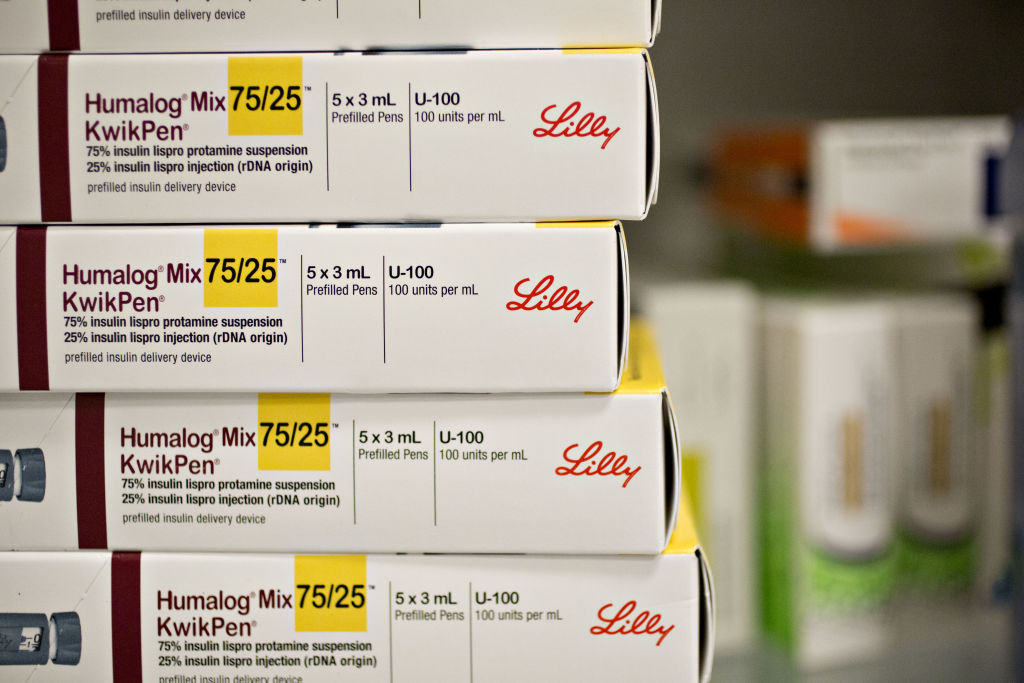Eli Lilly and Co., one of the largest drug manufacturers in the world, announced Wednesday that it will cut prices for some of its most commonly prescribed insulin products — a move that could potentially provide instant relief to millions of Americans struggling to buy the life-saving diabetes medication.

List prices for the drugs Humalog and Humulin will drop 70 per cent during the year’s fourth quarter, which starts in October. The Indianapolis-based drugmaker is also promising to offer a low-cost insulin injection for just US$25 ($35) a vial and will expand its existing US$35 ($50) cap on some insulin products to 85 per cent of U.S. pharmacies.
The move comes after U.S. President Joe Biden pushed for a universal US$35 cap on out-of-pocket insulin costs during the annual State of the Union address last month.
“While we could wait for Congress to act or the health-care system in general to apply that standard, we’re just applying it ourselves,” chief executive Dave Ricks told CNN in an interview.
Biden applauded the move by Lilly, calling it “a big deal.”
- Epstein files fallout: People who’ve resigned or been fired after DOJ release
- Inuit look to Greenland’s social model as Canada pursues military buildup in Arctic
- Canadians accused of joining ISIS moved out of Syria to prisons in Iraq
- 2 ICE officers face probe into whether they lied about Minneapolis shooting
“For far too long, American families have been crushed by drug costs many times higher than what people in other countries are charged for the same prescriptions. Insulin costs less than $10 to make, but Americans are sometimes forced to pay over $300 for it. It’s flat wrong,” Biden said in a statement on Wednesday.

Get weekly health news
The president also called on other pharmaceutical companies to cut drug costs.
A Lilly spokeswoman said the current list price for a 10-millilitre vial of the fast-acting, mealtime insulin Humalog is US$274.70 ($375). That will fall to US$66.40 ($90).
List prices are what a drugmaker initially sets for a product and what people who have no insurance or plans with high deductibles are sometimes stuck paying.
She said the same amount of Humulin currently lists at US$148.70 ($200). That will change to US$44.61 ($60).
It’s not clear if Eli Lilly will also be cutting prices in Canada. Global News has reached out to Eli Lilly Canada for further comment and clarification.
A US$35 cap on out-of-pocket insulin costs already exists for the millions of Americans covered under Medicare, but those with private insurance or no insurance stand to gain the most from Lilly’s program expansion — and the price cap is effective immediately.
Eli Lilly, Sanofi and Novo Nordisk make up 90 per cent of the U.S. market for insulin. Representatives for both Sanofi and Novo Nordisk said their companies offer several programs that limit costs for people with and without coverage.
Patient advocates have long called for insulin price cuts to help uninsured people who would not be affected by price caps tied to insurance coverage.
Lilly’s planned cuts “could actually provide some substantial price relief,” said Stacie Dusetzina, a health policy professor at Vanderbilt University who studies drug costs.
She noted that the moves likely won’t affect Lilly much financially because the insulins are older products, and some already face competition.
While the US$35 price is only available in pharmacies participating in the company’s insulin value program, Ricks said patients using other pharmacies can receive a rebate through the drugmaker’s website.
These price cuts “should be the new standard in America,” the CEO said, and he called on other companies and stakeholders “to meet us at this point.”
Research has shown that prices for insulin have more than tripled in the last two decades. Pressure is growing on drugmakers to help patients.
Drugmakers may be seeing “the writing on the wall that high prices can’t persist forever,” said Larry Levitt, an executive vice-president with the non-profit Kaiser Family Foundation, which studies health care.
“Lilly is trying to get out ahead of the issue and look to the public like the good guy,” Levitt said, adding that there’s nothing stopping Lilly from raising prices again in the future.
Eli Lilly and Co. became the first company to commercialize insulin in 1923, two years after University of Toronto scientists discovered it. The drugmaker then built its reputation around producing insulin even as it branched into cancer treatments, antipsychotics and other drugs.
— With files from Reuters and The Associated Press











Comments
Want to discuss? Please read our Commenting Policy first.